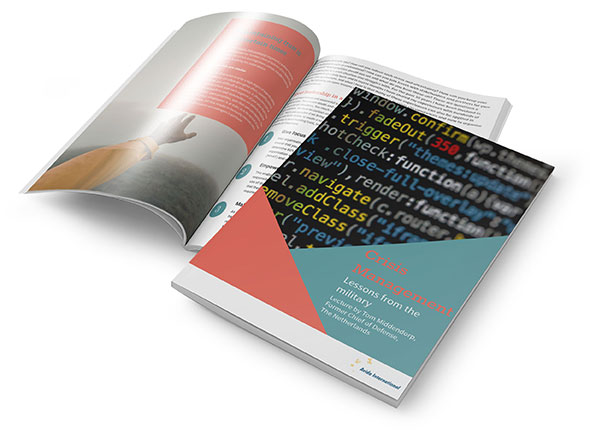Summary
This blog concerns current Risk management practice in pension schemes and suggests ways for improvement
Avida's view is that:
Avida's view is that:
• The nature of risk in pensions has changed a lot (and is still changing); crisis events are ever more likely
• Risk Management practice hasn’t evolved to respond and indeed is weak compared to other financial institutions
• Little real 'muscle memory' exists - or is being built up - to deal with crisis events
• Muscle memory is a powerful force in 'winning the game' - protecting loss for stakeholders and capturing opportunitiesWeaknesses in current Risk Management practice, and what can be done?
Pension funds - by their nature, are 100pc plugged into the global and domestic economy. We're living through a transition to a different economic world order. The Trump presidency, Brexit, the Ukraine War, a burst of inflation, LDI, recent banking sector wobbles and whatever comes next are all manifestations.
Our experience is that current Risk Management practice in pensions is a poor shadow of that in other financial institutions and needs to ‘get down the gym’. What might that mean?
The familiar model is to follow a 'doughnut' diagram, which lays out a PROCESS, something like this. Identify potential risks; analyse/evaluate the risk; treat the risk (e.g. accept, mitigate etc.); monitor and review, and so on. Ongoing monitoring involves scrutinising risk registers and a veritable kaleidoscope of risks and RAG ratings. Then repeat as per, likely a quarterly cycle. You know the drill.
The problem is the drill isn't a 'drill' at all. Drills are what the military do, or sports teams. Right? Yes, and by doing so, said teams stress test key elements of their game plan. This creates necessary ‘muscle memory’ throughout the team whilst generating sets of response options. This process builds psychological and organisational resilience and generates the dynamic responses necessary to withstand the stress. It allows the teams to win the moment, and in so doing win the game.
In a pension scheme, it might mean finding enough cash. Or a dynamic response to sudden moves in asset prices (i.e. selling high or buying low). Protecting against loss or capturing profit. Or maintaining and even enhancing reputation.
As a matter of course such 'drills' are what regulated financial institutions do - such as insurers, banks and asset managers. The PRA and FCA are strong on this and have through time developed ever greater standards and focus.
BUT NOT PENSION FUNDS!!
So why might it be different? The argument was that pensions were long term. They also used to have simple fund management arrangements. No-one had ever heard of tilted equities, multi-credit mandates, covenant assessments, LDI, or longevity hedges. DC provision was relatively small.
This has been turned on its head.
Corporate DB schemes are in a race to buy-out amounting to the greatest asset allocation and liquidity challenge in their history. Public DB schemes are coalescing but are evidently following increasingly varied strategies (i.e. the hope is more could go right, but of course more can go wrong too - and can they pounce on the opportunities?). DC schemes create a complex interaction of risks where one stress event affects all and the Zeitgeist seems to be to make them more complex. Master Trusts are beholden to a 'trigger framework' (which protects members on a failure). But we haven't seen anything public and frankly, remain somewhat sceptical that they have also developed the muscle memory/response function described.
All in the face of a much more volatile world order, where pension exposure is inherent.
How can Avida help?
Avida can help you create that muscle memory by running tailored and realistic crisis simulation events. These allow you to stress test key elements of your resilience in a safe-to-fail environment so that you know that your plans will work when needed. Our message is that Risk Registers and so on are fine as far as they go, but don’t help you manage a crisis when it emerges. Avida can help you do this, and has helped many clients with simulated exercises.
For more info, visit our website...



